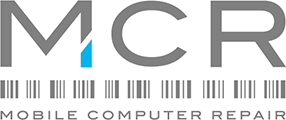When most of us picture barcodes in 2023, we are still likely to think of the Universal Product Code (UPC), which has been adorning items in retail stores around the world since the 1970s. Or perhaps you now most strongly associate barcode technology with the Quick Response (QR) code, which dates to the mid-1990s, but became ubiquitous in our lives during the COVID-19 pandemic?
You get what we’re suggesting here; it’s easy for great numbers of us to have rigid notions of what a barcode is and looks like. But the reality is that in the 2020s, barcode technology is continuing to evolve in ways we might have scarcely imagined just a few years ago.
As a leading barcode scanner repair service provider here at Mobile Computer Repair, we felt we were well-placed to spotlight some of the likely developments in barcode tech over the coming decade – so, let’s do exactly that.
1 – QR Codes Will Become More Relevant, Not Less
The explosion in the usage of QR codes isn’t set to be a pandemic-only phenomenon. While some 75.8 million smartphone users in the United States alone used their mobile devices to scan a QR code during 2021, the equivalent figure for 2025 is expected to be approximately 99.5 million users.
At the height of the pandemic, you might have most frequently seen QR codes on the tables of pubs, bars, and restaurants. However, QR codes have now become entrenched in our broader culture, with marketers accustomed to using them through such channels as product packaging, business cards, interactive TV, billboards, and many more.
2 – RFID Will Be a Complement to Barcodes
Another technology that is gaining an ever-more prominent place in our society, is Radio Frequency Identification (RFID). This is a wireless system that essentially consists of two components: tags and readers. RFID works by transmitting its identity to a receiver; those who have ever used a plastic card to scan themselves entry into something, such as a tube or metro system, will know how instant and intuitive it is to use this tech.
So, will RFID replace traditional barcodes? The short answer is no – instead, expect them to serve as a powerful complement to barcodes, including for object tracking. While barcodes will still be crucial for organising equipment and objects, RFID tags will be great for tracking the quantities of them. This combination will help bring about massive increases in productivity, given that high-volume locations won’t need to perform an exact scan on every product.
3 – The Rise of Image Barcodes
Artificial intelligence (AI) has been a subject of frenzied discussion lately – it seems to be upending our world in an alarmingly short space of time – and it looks like image scanning AI will be similarly transformative.
The idea with image barcode scanning is that the image of a particular product is run through a scanner, which recognises and scans the image. Again, this is a development that promises monster increases in productivity, with the person scanning a given item not even needing to do so at a specific angle, as is the case when traditional barcodes are used.
4 – More Efficient Healthcare Processes
We have written previously about how the healthcare sector depends on barcode technology, and barcodes will also be integral to the industry’s efforts to achieve future breakthroughs that will help us lead happier and healthier lives.
The medical research process, for example, will be accelerated by the ongoing development of barcode tech, given how barcodes can help link together vast amounts of information from many different researchers who may be based around the globe.
With the ability that barcodes give them to more easily connect the data they have, researchers will be able to organise and condense their information, so that they are well-placed to achieve more rapid progress.
5 – Greater Personalisation in Commerce
Personalisation is a buzzword that has attracted more and more attention from businesses seeking to provide their customers with an optimised retail experience. It’s all about using personal data to provide shoppers with a suitably tailored, and therefore more relevant experience.
How do barcodes feed into this? Well, as barcode tech continues to gain in sophistication, the barcodes of tomorrow will be able to transmit huge volumes more information than might have once seemed possible.
This will support businesses’ efforts to create truly individualised products and services for certain segments of their customer base – for example, packaging that looks different in different markets. The increasingly automated nature of today’s warehouses will further help make intricate levels of personalisation quick and easy for ambitious brands to achieve.
One More Thing…
We bet you never imagined that barcodes could be taking so many innovative forms in the years ahead – or that they could have such a profound impact on so many matters of intimate relevance to our lives.
All of that, though, awaits in the years ahead. If you have more immediate needs – for example, you find your Zebra, Honeywell, or Datalogic scanner not working – our team can assist. Enquire to Mobile Computer Repair by phone or email today, and we can arrange the repair work that you require to get your device back up and running with minimal downtime.

